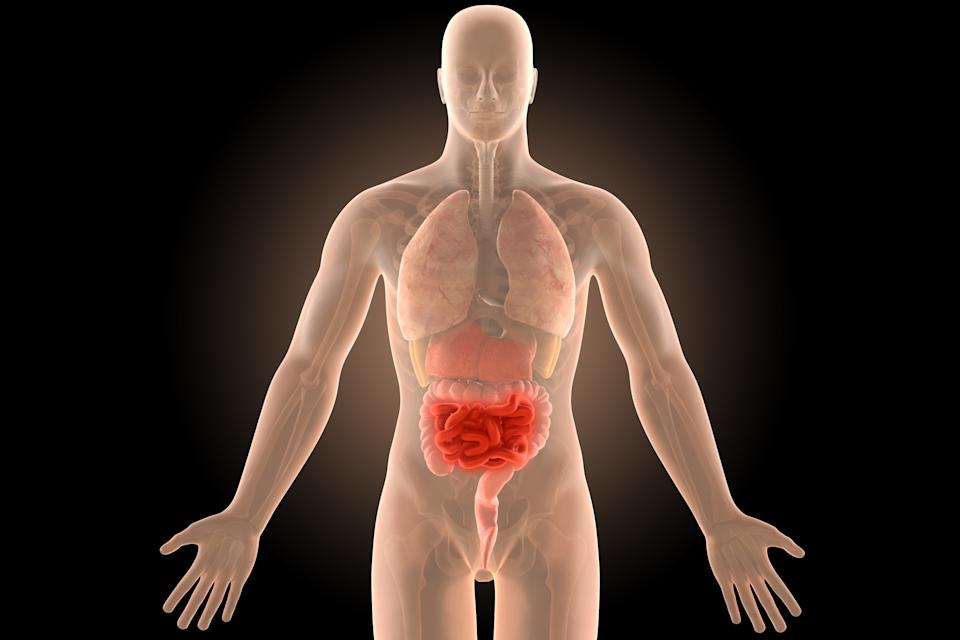Crohn’s could one day be treated with 'freeze-dried faeces capsules'

Crohn’s disease could one day be eased by taking a freeze-dried pill containing microbes found in faeces, experts have said.
The inflammatory bowel disease is considered a “lifelong condition” that can trigger diarrhoea, abdominal cramps and extreme fatigue.
While the exact cause of Crohn’s is unclear, research suggests an imbalance of gut bacteria may play a role.
Read more: Everything There Is to Know About Crohn's Disease
Faecal microbiota transplants (FMT) have therefore been suggested as a treatment. This involves taking “good” bacteria from a healthy donor’s gut to repopulate a patient’s microbiome.
Scientists from the Centre for Digestive Diseases in New South Wales, Australia, gave 10 patients a combination of FMT and standard Crohn’s drugs.
The patients achieved “prolonged remission”, with some free of flare-ups for up to 23 years.

Crohn’s is thought to affect 157 in every 100,000 people in the UK, meaning at least 115,000 Britons have the disease.
In the US, around 1.6 million people have an inflammatory bowel disease. This can include Crohn’s or ulcerative colitis.
Ulcerative colitis only causes inflammation of the colon, whereas Crohn’s can affect the entire digestive tract.
With no cure, Crohn’s patients often take immune-suppressing drugs to dampen inflammation in their gut.
Writing in the journal Gut Pathogens, the Australian scientists claim drug efficacy is “sub-optimal”, with more than 60% of patients failing to respond to the medication after six weeks.
Crohn’s has been linked to everything from genetics and smoking to a suppressed immune system and stomach bug.
Research suggests colonisation of the bacteria Mycobacterium avium in the gut may also be a trigger, supporting FMT as a potential treatment.
Read more: What it’s really like to live with Crohn’s disease
To learn more, the scientists looked at 10 patients, seven of whom took Crohn’s-specific antibiotics for around three years to “initially induce deep healing”.
After coming off the antibiotics, five of the patients had around four FMT transfusions each.
All the patients experienced “prolonged remission” lasting between three and 23 years.
For most, this was achieved via a combination of FMT, antibiotics and the Crohn’s drug infliximab.
FMT is thought to “re-establish a healthy gut microbiome after prolonged antibiotic use”.
Antibiotics can be highly effective at ridding infections, however, they can also target “good bugs” in the gut.
Two of the participants achieved “long-term clinical remission and mucosal healing” with FMT alone.
“Antibacterial therapy and FMT are emerging treatments which can result in clinical and endoscopic remission, if employed correctly,” the scientists wrote.
While further research is required, they believe this could pave the way for a treatment regimen of antibiotics and a “crapsule”, an oral capsule of freeze-dried donor faecal microbiota.
What is faecal microbial transplantation?
FMT is only approved in the UK when other treatments have failed to stop diarrhoea caused by the bacteria Clostridium difficile.
It involves faeces being taken from a healthy donor and processed.
A liquid mixture is then transplanted into a patient’s intestine via an endoscope. The aim is to restore the balance of gut bacteria so they can fight the infection.
Donors are first tested for an array of infections. They must be free of health problems and lead a healthy lifestyle.
C. difficile can be tricky to treat, with up to a one in four chance of the infection returning after initially seeming to be cured.
The bacteria can become less responsive to antibiotics over time, prompting doctors to recommend FMT.
Read more: Crohn's Disease: Symptoms and Treatment
There have been no reported cases of infections as a result of a patient receiving the transplant.
FMT has also shown promise in ulcerative colitis.
Scientists from The University of Texas MD Anderson Cancer Center gave two patients the transplant after they developed inflammatory bowel disease as a result of cancer therapy.
After just one transfer, the female patient’s symptoms disappeared completely within two weeks.
The man experienced partial recovery after one treatment and total resolution after a second.



